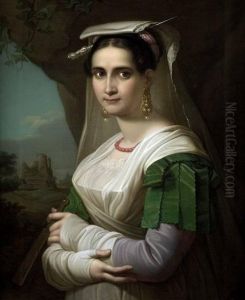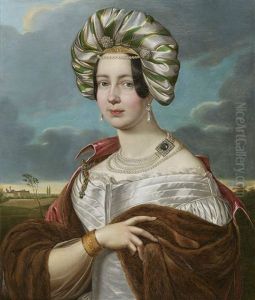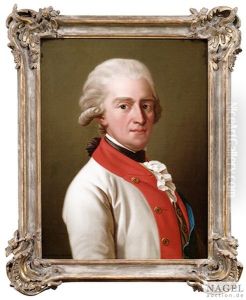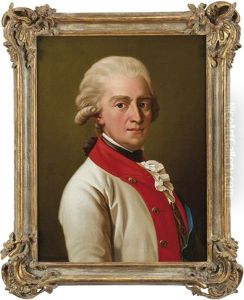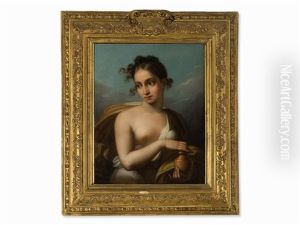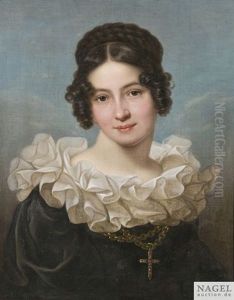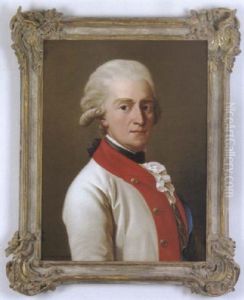Ludwig Doell Paintings
Ludwig Doell was a German sculptor and medallist born on August 4, 1789, in Gotha, Germany. He was active during a period of significant cultural and political changes in Europe, which coincided with the late Neoclassical and early Romantic movements in art. Doell's work, reflective of the era's aesthetic, often included classical themes and mythological subjects.
Initially, Ludwig Doell was trained by his father, who was also a sculptor. He later attended the Academy of Fine Arts in Berlin, where he continued to refine his craft. During his time at the academy, he was influenced by the neoclassical ideals that were prevalent in art at the time, and this influence is seen throughout his body of work. He worked in various materials, including marble, bronze, and plaster, and was known for his skillful execution and attention to detail.
Doell's career saw him taking on a variety of commissions, including portrait busts, public monuments, and decorative sculptures. Among his notable works are the statues of Martin Luther and Philipp Melanchthon in Wittenberg, which reflect his ability to capture the likeness and character of his subjects. His medallions also gained recognition for their intricate designs and the precision with which he rendered portraits in relief.
Throughout his life, Doell garnered respect and acclaim for his artistic talents. He became a member of the Berlin Academy and received commissions from various German states. His works are still appreciated today for their contribution to the Neoclassical tradition in Germany.
Ludwig Doell passed away on January 25, 1863, in Berlin. His legacy is preserved in the sculptures and medallions that continue to be appreciated by art historians and enthusiasts. His contributions to German sculpture have cemented his place in the history of 19th-century European art.
